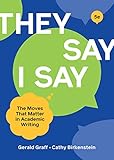 |
Learning Resource Centre Monthly Bulletin |
 |
 |
Learning Resource Centre Monthly Bulletin |
 |
| New Books |
 B119958 How to Write a Lot By Silvia Paul J |  B119960 They Say I Say By Graff Gerald | B119975 Take Care of Your Music Business By Kellogg John |
| Click Here to learn about the Recent Books added to our collection on different topics of Management. |
| Articles |
| The Impact of Social Media Marketing on Consumer Decision-Making: A Thematic Analysis. By Nanda, Ch Siddharth;Mishra, Kaushik Advances in Consumer Research. 2025, Vol. 2 Issue 4, p202-230. 29p. Abstract :This research explores the impact of social media platforms, particularly Facebook, on businesses` marketing strategies and consumer relationships, focusing on its significant influence on customers` decision-making processes during purchase decisions. By in-depth interviews and an extensive review of secondary data, the research employed "thematic analysis" using NVivo Qualitative Analysis software. The findings shed light on a variety of subjects, highlighting the significant link between social media marketing initiatives, particularly those on Facebook, and consumer purchasing choices. In addition to its academic consequences, this study is managerially relevant since it identifies factors critical for capturing target consumers and driving purchasing choices. It also represents a larger research trajectory, providing further insights into the complex dynamics of consumer behavior in the changing world of online shopping Summary Statement of Contribution This study explores the impact of social media on marketing, particularly Facebook`s influence on customer choice. It reveals a direct correlation between purchase intentions and social media marketing activities. The findings offer valuable insights for managers seeking efficient marketing strategies and contribute to academic research, laying the groundwork for further research on customer behavior in online shopping [ABSTRACT FROM AUTHOR] | |||
| Analyzing Social Media Activities of Startups Incubated in the Business Incubators of North East India. By HUSSAIN, JAMAL;BARMAN, HIMADRI Journal of Small Business Strategy. 2025, Vol. 35 Issue 1, p1-15. 15p Abstract :Startups are slowly becoming a lead player in fostering economic prosperity of a nation. Despite its prominence in socio-economic systems, it is confronted with numerous challenges like lack of funds, expertise, mentoring and many more making them vulnerable and putting their survival at risk. Literature provides enough evidence that incorporation of social media strategy in the overall business strategy is beneficial for multinational businesses. However, limited studies have been found that deals with social media in the context of startups especially that are incubated in Business Incubators (BIs). A study has been carried out to address this gap by exploring the use of social media by 65 startups that are incubated in four BIs of Assam, the economically most developed state of north-east India. A total of 2795 social media posts have been identified from the verified profiles maintained by the startups on four popular social networking sites - Facebook, Instagram, Twitter and LinkedIn. Data were collected on different social media metrics for a period of 3 months (91 days) and were analyzed that led to some interesting insights. This study has put up recommendations based on the analysis that may be implemented by the startups in formulating their social media strategy. [ABSTRACT FROM AUTHOR] | |||
| Do you wish to explore more articles? Just try using one of the full-text databases below! | |||
| Faculty - Click here to recommend new topics in Meida & Entertainment |
| News |
| Is Krafton India planning to bring in-game ads to BGMI? By Business Standard; 28 Jan 2026 |
| Economic survey calls out predatory social media platforms, opens door to online age curbs By The Telegraph; Jan 30 2026 |
Wish to see more News? Click the link below: |